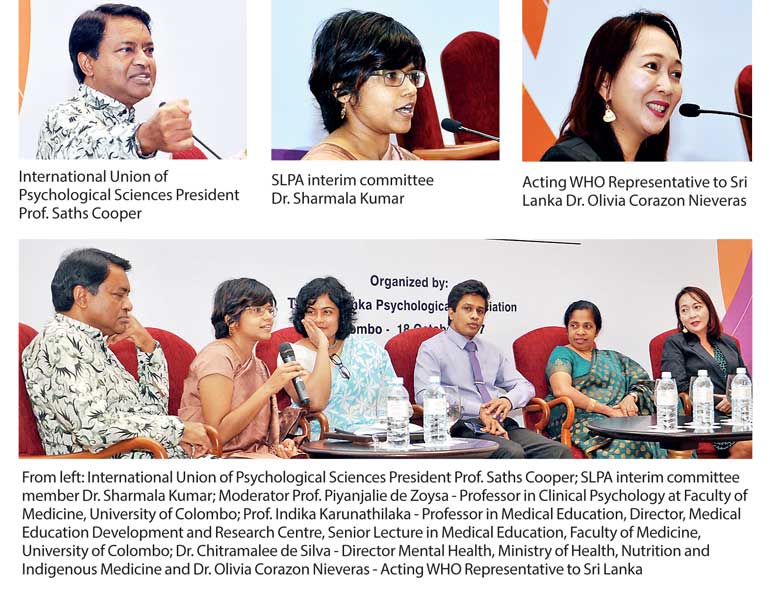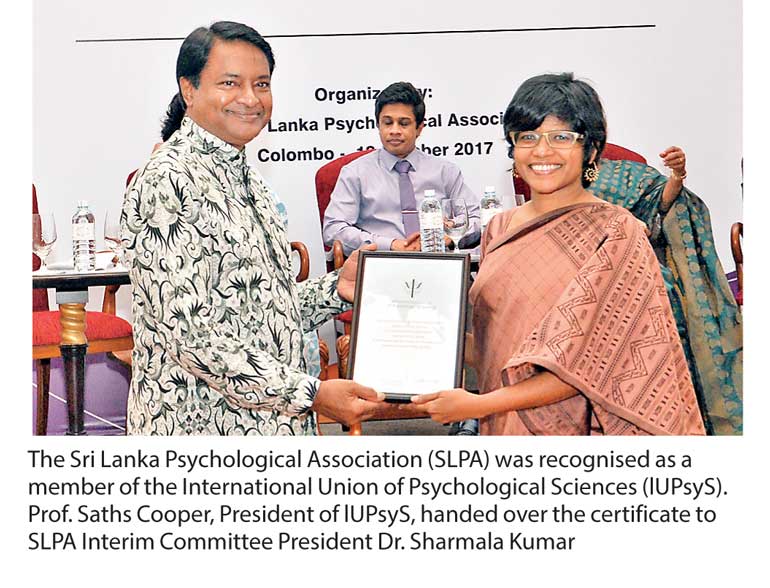Saturday Feb 21, 2026
Saturday Feb 21, 2026
Friday, 20 October 2017 00:00 - - {{hitsCtrl.values.hits}}



By Shanika Sriyananda
A renowned mental health expert said that a truth and reconciliation process similar to South Africa would help to create a psychological society to heal the inner scars of war victims.
“South Africa was at war with itself similar to Sri Lanka, which had a war in some parts of the country. It was an internal issue and psychology was used by the previous apartheid regime to keep people down but when Nelson Mandela was released from prison, he started a process with the guidance of the psychologists of talking to each other,” International Union of Psychological Sciences President Prof. Saths Cooper said.
Prof. Cooper, who is a renowned personality in mental health and played a key role in the advent of democracy, psychology and mental health during and post-Apartheid in South Africa, said the ‘talk to each other’ process was strengthened when Mandela became the President of South Africa and it helped to grant amnesty for many people.
He said that in the truth and reconciliation process psychologists played a prominent role as they were appointed as commissioners.
According to Prof. Cooper, the majority of people were aggressive and didn’t speak out initially but fellow citizens approached them to help them to come out with the truth.
“We talked about the past in order to avoid repeating the horrific past, which will not become nightmares of the future,” he said at a panel discussion held in Colombo organised by the Sri Lanka Psychological Association.
He said that the amnesty was given for those who came forward to reveal how they tortured people and those who didn’t reveal the past had been prosecuted.
Delivering the keynote address at the seminar on ‘Psychologists’ Role towards National Development’, Prof. Cooper said that psychologists could play a positive role in reducing mental health issues amongst the general public.
“For years, the World Health Organization has been highlighting the rising global trend of depression. A multipronged strategy to reduce the debilitating consequences of mental health issues is required for all of us. Psychology is able and willing to play its part to ensure that society functions optimally,” he said. Ministry of Health, Nutrition and Indigenous Medicine Director Mental Health Dr. Chithramalee de Silva said that mental health services in Sri Lanka had grown significantly over the past decade and it was critical for all mental health professionals to work together in delivering services to the people.
- Pix by Ruwan Walpola
Acting WHO Representative to Sri Lanka Dr. Olivia Corazon Nieveras revealed that depression and anxiety disorders cost the global economy $ 1 trillion each year.
“Mental health issues will not only bring serious health impacts but also have severe impacts on the world economy. This will hinder the country’s ability to meet development goals,” she said.
According to Dr. Nieveras, a recent study of the WHO has found that over 300 million people suffer from depression globally.
Commending the Government’s efforts to improve the mental health sector and focus on mental health issues, she said psychological issues did not discriminate between, age, gender, religion, ethnicity or social status and could impact anybody.